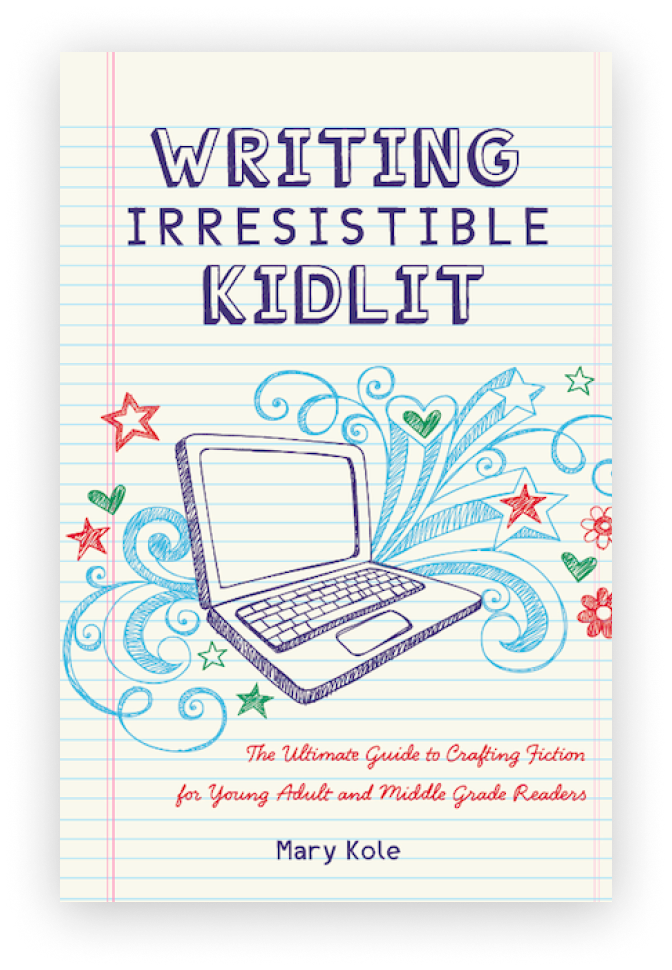How to Become an Indie Author
By Mary Kole
Mary Kole is a former literary agent, freelance editor, writing teacher, author of Writing Irresistible Kidlit, and IP developer for major publishers, with over a decade in the publishing industry.
So, you've decided to become an indie author, meaning to self-publish your writing. (This is not to be confused with using an independent or “indie” traditional publisher to issue your work.) Getting your work out there can be a daunting task but with the right techniques and strategies, self-publishing and becoming a proud indie author can also be an incredibly rewarding experience. As an expert on writing and publishing, I am here to provide you with tips on what writers must consider when they become an indie author (or are thinking about going direct to market with their work). I’ll cover several key areas that are important for anyone who wants to succeed as an indie author. From quality control to marketing tactics, you'll find everything you need to know to get started on your indie author journey.
Quality Control as an Indie Author
As an indie author, you have complete control over your work, which attracts a lot of writers to self-publishing. This also means, however, that you have the responsibility to make sure the final product is of the highest possible quality. Whether you're writing in a genre you love or one that's new to you, it's vital to research and read as much as you can before you start crafting your story. Get feedback from beta readers or hire a professional editor to review your manuscript. You’ll at least want to work with a proofreader, so that your project isn’t riddled with errors, which your readers will point out in book reviews. Remember, a book that is well written, professionally edited, and beautifully formatted is more likely to be read and recommended by readers.
Working with Qualified Freelancers
As an indie author, you might be tempted to try and take on all aspects of the book production process yourself. However, this can result in sub-par work, which will ultimately harm your reputation. Especially when you’re starting out and still learning self-publishing tools and strategies that are available. Instead, hire qualified freelancers such as editors, cover designers, and even book marketing experts. Remember, a great book cover can make all the difference when it comes to attracting readers, and a professional designer will know what makes your book pop in a crowded marketplace.
Writing to Market and Using Relevant Tropes
While it's essential to write for your audience, you don't have to give up your artistic vision entirely. Writing to market means understanding the expectations of your chosen genre and subgenre and crafting a story that meets those expectations while still being unique. Using relevant tropes, which will be familiar to readers, can be a great starting point for crafting a story your target audience will love. If you want to subvert a trope or play with reader expectations, make sure you do it intentionally and for good reason, rather than shock value.
Building an Indie Author Brand
As an indie author, your name is your brand. You need to establish yourself as a reliable, professional source of engaging and interesting stories. Consider hiring a graphic designer to create a logo and assets for your online presence. Build an author website and social media for writers accounts to showcase your work and connect with readers. Remember to be active and engage with your fans, and most importantly, remember to keep your content fresh. A dead online presence, or a blog that hasn’t been updated since 2012, is worse than no book promotion at all.
Marketing Your Work and Growing Your Readership
Marketing your work is probably the most challenging part of being an indie author, but it's also the most important. You need to understand your target audience and meet them where they are. Consider platforms like Amazon, Goodreads, or even paid advertising through social media channels. Building an email list, doing newsletter swaps, giving away a lead magnet, and participating in giveaways can also help grow your readership. Your email newsletter list is one you own, that’s platform agnostic, and this is going to be one of your most valuable assets as an indie author.
Becoming an indie author isn't just a way around traditional publishing gatekeepers—it's an opportunity to showcase your work and establish yourself as a professional. While it can be an uphill battle, with the right skills and techniques, you can build a successful writing career. However, it's crucial to keep a reality check of how difficult it is to succeed as an indie author and be willing to put in the work. Crafting compelling storytelling, keeping a rigorous eye on quality, working with qualified freelancers, writing to market using relevant tropes, building an indie author brand, and marketing your work are all crucial steps in the process. Remember, a little bit of creativity, perseverance, and hard work can go a long way in the indie author space.

Click here to purchase Writing Irresistible Kidlit, my book on fiction craft for MG and YA novels, out from Writer's Digest Books. This will show you my writing craft philosophy and give you lots of valuable advice, including tips for the novel revision process and self-editing. There are over 35 example novels cited and discussed throughout. It’s a valuable resource for any writer’s toolkit.
Click here to purchase Irresistible Query Letters, my book on query letters, including over forty examples with comprehensive notes on each one. There’s a ton of submission advice, best practices, and insider information in these pages, and you’ll really enjoy seeing what other writers are doing in the slush.




